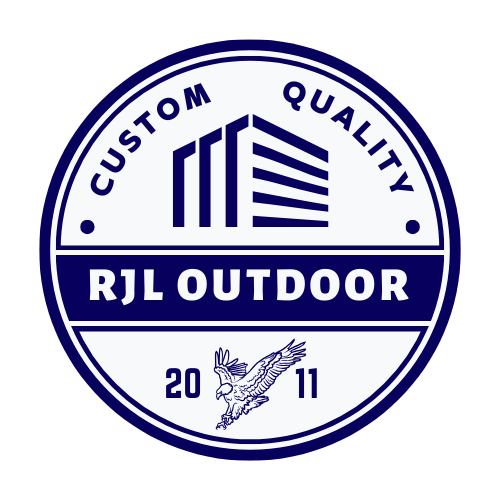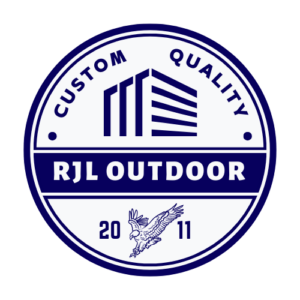Howdy!:
Commercial Fencing DFW: Your Guide to Securing Your Business
Protecting your business in the bustling DFW metroplex is paramount. Whether it’s safeguarding your inventory, defining your property lines, or simply enhancing your curb appeal, a robust commercial fence is a smart investment. But navigating the world of fencing can feel like a maze, especially with countless materials, styles, and contractors vying for your attention. Don’t fret! This comprehensive guide dives deep into everything you need to know about commercial fencing in DFW, equipping you with the knowledge to make informed decisions and secure the perfect fence for your business.
Understanding Your Fencing Needs
Before diving into the nitty-gritty of fence types and installation, take a step back and evaluate your specific needs. A clear understanding of your objectives will guide you towards the right fence solution.
Security
- Level of Protection: Do you require a basic deterrent or a high-security fence to prevent intrusions?
- Vulnerable Points: Identify potential weak spots on your property that need reinforced security.
- Access Control: Determine the number and location of gates required for authorized entry and exit.
Functionality
- Boundary Definition: Clearly mark your property lines and deter encroachment.
- Privacy: Shield sensitive areas from public view or create a secluded space for employees.
- Noise Reduction: Minimize noise pollution from busy streets or neighboring businesses.
- Windbreaks: Protect your property from strong winds and create a more comfortable outdoor environment.
Aesthetics
- Architectural Style: Choose a fence that complements your building’s design and enhances its curb appeal.
- Material and Color: Select materials and colors that align with your brand identity and aesthetic preferences.
- Landscaping: Integrate the fence seamlessly with existing landscaping or plan for new plantings.
Exploring Commercial Fence Types
The DFW area offers a diverse range of commercial fence types, each with its own set of advantages and disadvantages. Understanding these characteristics will help you select the best fit for your needs.
Chain Link Fencing
Pros:
- Affordability: Chain link fencing is a cost-effective option, especially for large perimeters.
- Durability: Galvanized or vinyl-coated chain link fences are resistant to rust, corrosion, and weathering, making them a long-lasting choice.
- Low Maintenance: Chain link fences require minimal upkeep, typically involving occasional cleaning and inspections.
- Versatility: Available in various heights, gauges, and colors, chain link fences can be customized to meet different security and aesthetic needs.
- Security Add-ons: Enhance security with barbed wire, privacy slats, or security cameras.
Cons:
- Aesthetics: Chain link fences may not offer the most visually appealing option for businesses seeking a more sophisticated look.
- Limited Privacy: The open weave design provides minimal privacy unless combined with privacy slats.
Ornamental Iron Fencing
Pros:
- Elegance and Sophistication: Ornamental iron fences add a touch of class and prestige to any property.
- Durability: Iron fences are incredibly strong and resistant to impact, making them ideal for high-security applications.
- Longevity: With proper maintenance, including regular painting or powder coating, iron fences can last for decades.
- Customization: Choose from various styles, designs, and finishes to create a unique and eye-catching fence.
Cons:
- Cost: Ornamental iron fencing is a more expensive option compared to chain link or wood.
- Maintenance: Iron fences require regular maintenance to prevent rust and corrosion.
- Limited Privacy: The open design provides minimal privacy unless combined with hedges or other landscaping.
Aluminum Fencing
Pros:
- Aesthetics: Aluminum fences offer a sleek and modern look that complements contemporary architecture.
- Low Maintenance: Aluminum is naturally resistant to rust and corrosion, requiring minimal upkeep.
- Lightweight: Aluminum fences are easier to install compared to heavier materials like iron.
- Variety: Available in various styles, colors, and finishes to match different design preferences.
Cons:
- Durability: Aluminum fences are not as strong as iron and can be susceptible to dents or damage from impacts.
- Cost: Aluminum fencing can be more expensive than chain link but less expensive than ornamental iron.
- Limited Privacy: The open design provides minimal privacy unless combined with other privacy solutions.
Wood Fencing
Pros:
- Natural Beauty: Wood fences offer a warm and inviting aesthetic that blends well with natural surroundings.
- Versatility: Choose from various wood types, styles, and finishes to achieve different looks.
- Privacy: Solid wood fences provide excellent privacy and noise reduction.
Cons:
- Maintenance: Wood fences require regular staining, sealing, and repairs to prevent rot, warping, and insect damage.
- Durability: Wood is susceptible to weathering and can deteriorate over time, especially in harsh climates.
- Cost: The cost of wood fencing can vary significantly depending on the wood type and design complexity.
Vinyl Fencing
Pros:
- Low Maintenance: Vinyl fences are highly resistant to moisture, fading, and insects, requiring minimal upkeep.
- Durability: Vinyl fences are durable and long-lasting, often backed by manufacturer warranties.
- Versatility: Available in a wide range of styles, colors, and textures to mimic the look of wood or other materials.
Cons:
- Aesthetics: Some vinyl fences may appear less authentic compared to natural materials like wood or iron.
- Cost: Vinyl fencing can be more expensive than chain link or some wood options.
- Susceptibility to Heat: Dark-colored vinyl fences can absorb heat and become hot to the touch in direct sunlight.
Navigating the Installation Process
Choosing the right fencing contractor is crucial for a successful installation and a fence that stands the test of time.
Finding a Reputable Contractor
- Seek Recommendations: Ask for referrals from other businesses, neighbors, or friends.
- Check Online Reviews: Explore online platforms like Google My Business, Yelp, and Angie’s List to gauge customer satisfaction.
- Verify Credentials: Ensure the contractor is licensed, insured, and bonded to protect yourself from potential liabilities.
- Request Multiple Quotes: Obtain quotes from several contractors to compare pricing and services.
- Inquire about Warranties: Understand the warranties offered on materials and labor.
The Installation Process
A typical commercial fence installation involves the following steps:
- Site Assessment: The contractor will visit your property to assess the site, take measurements, and discuss your needs.
- Permitting: Depending on local regulations, permits may be required for fence installation. Your contractor should handle this process.
- Material Delivery: Materials will be delivered to your site in preparation for installation.
- Post Setting: Fence posts will be set in concrete to provide a stable foundation.
- Fence Panel Installation: Fence panels will be attached to the posts, creating the fence structure.
- Gate Installation: Gates will be installed at designated access points.
- Final Touches: The contractor will make any necessary adjustments and clean up the work area.
Maintaining Your Commercial Fence
Proper maintenance ensures the longevity and performance of your fence, maximizing your investment.
Regular Inspections
- Inspect Your Fence Regularly: Examine your fence monthly for signs of damage, wear, or loose components.
- Check for Rust or Corrosion: Address any signs of rust or corrosion promptly to prevent further deterioration.
- Inspect Gate Hardware: Ensure gate hinges, latches, and locks are in good working order.
Cleaning and Repairs
- Clean Your Fence Periodically: Remove dirt, debris, and mildew using a hose, brush, and mild detergent.
- Repair any Damage Promptly: Address any cracks, holes, or broken components to prevent further damage.
- Repaint or Restain as Needed: Protect wood or iron fences from the elements with regular repainting or restaining.
Enhancing Security with Access Control
For businesses requiring heightened security, consider integrating access control systems with your fencing.
Gate Automation
- Convenience and Security: Automate your gates with electric operators for easy access control and increased security.
- Access Control Integration: Integrate your gate automation with keypad entry, card readers, or intercom systems for authorized entry.
Security Cameras
- Deterrence and Surveillance: Install security cameras around your perimeter to deter crime and monitor activity.
- Remote Monitoring: Access live or recorded footage remotely from your smartphone or computer.
DFW Fencing Regulations
Before erecting a fence, familiarize yourself with local fencing regulations in the DFW area. These regulations may vary depending on your city or county.
Common Regulations
- Height Restrictions: Maximum fence heights are often specified for front, side, and rear yards.
- Setback Requirements: Fences may need to be set back a certain distance from property lines or sidewalks.
- Material Restrictions: Some areas may have limitations on fence materials or colors.
- Permitting Process: Permits may be required for fence installation, and inspections may be conducted.
Budgeting for Your Commercial Fence
The cost of commercial fencing in DFW can vary significantly based on factors such as:
- Fence Material: Different materials come with varying price points.
- Fence Length and Height: Longer and taller fences require more materials and labor, increasing the cost.
- Gate Installation: Gates typically add to the overall expense.
- Site Preparation: Uneven terrain or existing structures may require additional site preparation, impacting the cost.
- Labor Costs: Labor costs can vary based on the complexity of the installation and the contractor’s rates.
Making Informed Decisions
Choosing the right commercial fence for your DFW business is a significant decision. By understanding your needs, exploring different fence types, and partnering with a reputable contractor, you can secure your property with confidence.
RJL: Remember, a well-chosen and properly installed fence not only provides security and functionality but also enhances your business’s curb appeal, making a positive impression on clients and visitors.





